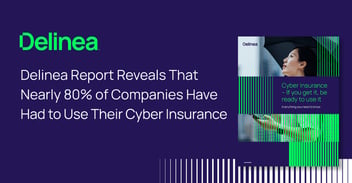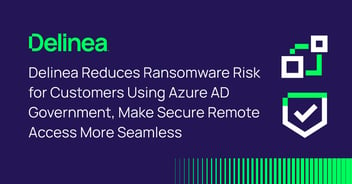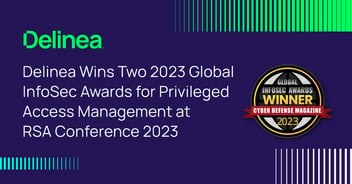Remote Working Has Increased Risk of a Cyber Breach, Say Three Quarters of UK Businesses
Delinea Team
London ― April 6, 2020 ― Nearly three-quarters of business decision-makers (71%) believe that the shift to 100% remote working during the Covid-19 crisis has increased the likelihood of a cyber breach, according to new data released by cybersecurity company Centrify, a leading provider of Identity-Centric Privileged Access Management solutions.
The data, obtained via a poll of 200 senior business decision-makers in large- and medium-sized UK companies conducted by independent polling company Censuswide on behalf of Centrify, also revealed that 46% have already noted an increase in phishing attacks since implementing a policy of widespread remote working. The polling took place on 26th – 27th March, as the UK government announced much stricter lockdown policies to tackle the Coronavirus, including urging all employees to work from home where possible.
The research also found that 79% of business decision-makers have increased their cybersecurity procedures to manage high volumes of remote access over the next three months. Similarly, 73% of businesses have given staff extra training on how to remain cyber-safe when working remotely, with specific training around verifying passwords and log-in credentials.
The survey also noted additional fears that IT systems are at risk, with over half (53%) saying they believe that privileged IT admin remote access is at risk of a security breach.
“Cybercriminals will no doubt attempt to seize the opportunity presented by the all-out expansion of remote workers, many of whom have not been proficiently trained in even the most basic of cybersecurity measures. Therefore, it is essential that businesses and employees remain vigilant during these challenging times,” said Andy Heather, VP at Centrify. “Organisations of all sizes must prioritize security protocols when transitioning employees from an office to a remote working environment. This includes introducing professional training for all employees on how to operate IT and online infrastructure safely, and how to spot unusual or potentially malicious activity. Furthermore, businesses should take an Identity-centric approach to secure remote privileged access, to ensure that any cyber criminals and cyber criminals can not gain access to sensitive systems or data.”
“Ignorance of the law is no defense, even with remote working. Company directors and business owners owe it to themselves, their staff, their shareholders, and their customers to know how to protect their businesses and their customers’ data," said Donal Blaney, MD, Griffin Law, a cybersecurity specialist legal firm. "They will only have themselves to blame if they have ineffective defenses. Ensure your systems are secure, train your staff, keep anti-virus programs, hardware, and software current, and clarify the method with which you connect with customers securely."
For more information about secure remote access for IT administrators, visit https://www.centrify.com/privileged-access-management/capability/secure-remote-access/.
About Centrify
Centrify is redefining the legacy approach to Privileged Access Management by delivering multi-cloud-architected Identity-Centric PAM to enable digital transformation at scale. Centrify Identity-Centric PAM establishes a root of trust and then grants least privilege access just-in-time based on verifying who is requesting access, the context of the request, and the risk of the access environment. Centrify centralizes and orchestrates fragmented identities, improves audit and compliance visibility, and reduces risk, complexity, and costs for the modern, hybrid enterprise. Over half of the Fortune 100, the world’s largest financial institutions, intelligence agencies, and critical infrastructure companies, all trust Centrify to stop the leading cause of breaches – privileged credential abuse.
®Centrify is a registered trademark of Centrify Corporation in the United States and other countries. All other trademarks are the property of their respective owners.


